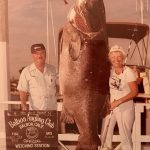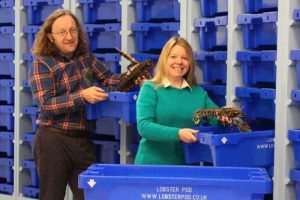Tag Archives: Gulf Coast shrimpers
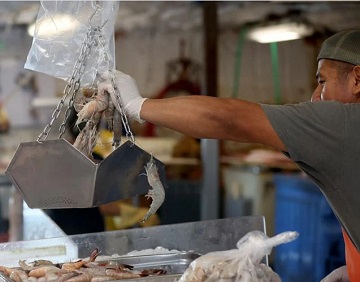
Lawmakers push for tighter rules on imported shrimp
A federal lawmaker representing Galveston County has co-sponsored a bill that would increase U.S. Food and Drug Administration testing to ensure imported shrimp meet domestic health and safety standards and fund a federal agency to buy some of the U.S. catch under some circumstances. The bill is meant to weed out tainted shrimp and level the field for U.S. shrimpers and seafood markets that must meet higher quality standards and have been battered by large foreign companies, including shrimp farming operations, able to sell their products in the United States for about half the domestic price. Customers leaving the seafood market agreed. Customer Fredell Rosen said domestic shrimp is the only way to go. “I want my shrimp from here,” Rosen said. “I want my shrimp local. I’m willing to pay more because I know it’s regulated and safe.” >click to read< 16:01
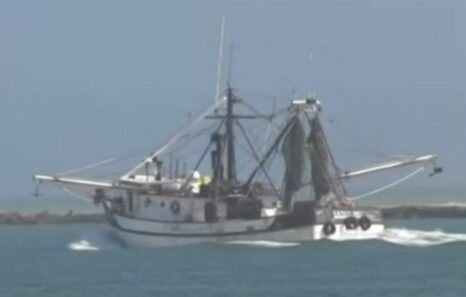
Low fuel prices may have saved Gulf Coast shrimpers
Texas shrimpers had a painfully low amount of shrimp harvested in the Gulf in 2020. It dropped from an annual average of 45-50 million pounds of shrimp to 38 million pounds. Yet in the beginning stages of a new year, there is interesting news about what actually happened. According to Andrea Hance with the Texas Shrimp Association, “We actually ended the year on a fairy positive note and it’s kind of hard to believe,,, video, >click to read< 16:48
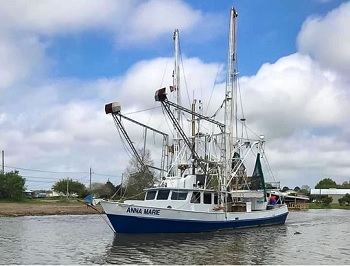
‘Another punch in the gut’: Gulf Coast shrimpers navigate the coronavirus crisis
Shrimping is a hard business. Gulf Coast shrimpers, who bring in three quarters of the nation’s catch, have been battered with waves of bad luck. Hurricanes. A flood of cheap imports. The BP Deepwater Horizon oil spill in 2010. Fresh water diversions that kill seafood. And now the coronavirus. Restaurants buy 80% of both imported and domestic shrimp, according to the Southern Shrimp Alliance. With restaurants closed or offering only takeout, no one is buying much shrimp. Next month would typically launch the peak of shrimp season as Gulf states begin their annual opening of nearshore waters to shrimping. >click to read< 07:45
BP Drops drop its bid to avoid paying 1 Billion Seafood Industry Spill Payments
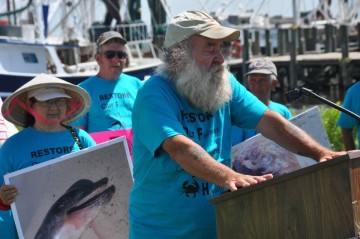 After fighting for more than two years to avoid paying almost $1 billion in oil spill damages to Gulf Coast shrimpers, oystermen and seafood processors it claimed didn’t exist, BP Plc has thrown in the towel. A federal judge in New Orleans Monday allowed BP to drop its bid to avoid paying the second half of $2.3 billion in compensation promised to seafood interests harmed by the blown-out well. The subsea gusher pumped more than 4 million barrels of crude into the Gulf of Mexico in 2010, closing fisheries and blackening the shores of five states. BP had paid out about $1 billion of the seafood fund when it balked at paying the remainder after discovering irregularities in one law firm’s client list. The seafood payout is a separate earmark within BP’s Read the rest here 07:23
After fighting for more than two years to avoid paying almost $1 billion in oil spill damages to Gulf Coast shrimpers, oystermen and seafood processors it claimed didn’t exist, BP Plc has thrown in the towel. A federal judge in New Orleans Monday allowed BP to drop its bid to avoid paying the second half of $2.3 billion in compensation promised to seafood interests harmed by the blown-out well. The subsea gusher pumped more than 4 million barrels of crude into the Gulf of Mexico in 2010, closing fisheries and blackening the shores of five states. BP had paid out about $1 billion of the seafood fund when it balked at paying the remainder after discovering irregularities in one law firm’s client list. The seafood payout is a separate earmark within BP’s Read the rest here 07:23









































